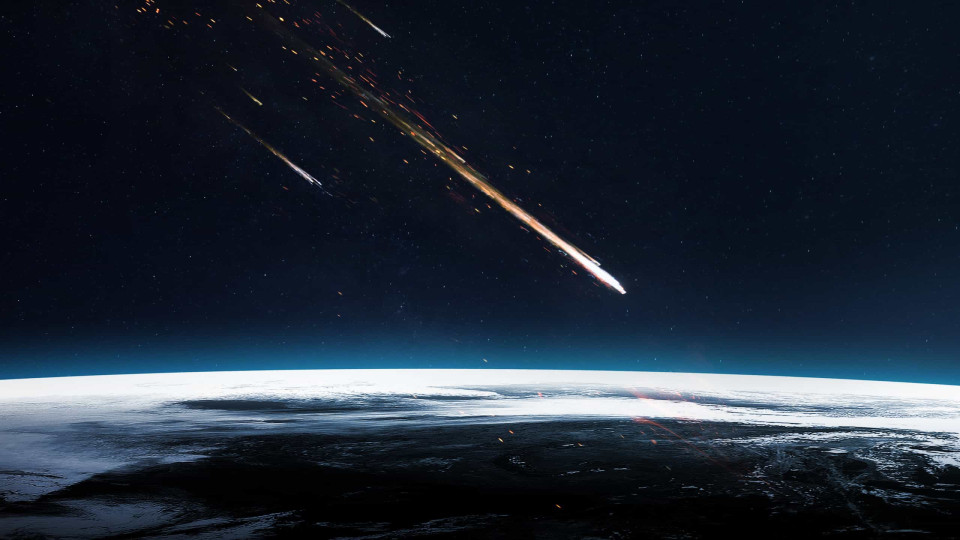Meteors usually vaporize in atmosphere, astrophysicist says
The meteor seen on Saturday night throughout the country is a normal phenomenon in Portugal, although rare in this dimension, and usually these rocks vaporize in the atmosphere and "may not have fallen anything whole of reasonable size".

© Shutterstock

Tech Espaço
The statement is made by the researcher from the Institute of Astrophysics and Space Sciences and the University of Coimbra, Nuno Peixinho, who says that "these bolides", due to the high speed at which they move, may give the impression that they are at a distance and, after all, "are not that close" to where they are observed.
Nuno Peixinho explained that 50 thousand tons of space dust fall on Earth every year and that there is a network of cameras in Portugal and Spain, automatically activated, to record these phenomena and that, by cross-referencing this data, it is possible to understand whether or not it fell and calculate, with some margin of error, the location.
"They are pieces of rock that come at a high altitude and speed, between 10 and 70 kilometers per second", explained Nuno Peixinho, in statements to the Lusa agency.
According to the researcher, just like shooting stars, although these are much smaller, they burn up in the atmosphere and it is from this chemical process that the light trail that is seen results, which in the case of blue "indicates that the type of material that is burning, vaporizing, is magnesium".
"As they travel at several kilometers per second, against the air, the pressure that this exerts on the atmosphere is so great that temperatures easily reach 25 thousand degrees, and at this temperature everything vaporizes", stressed Nuno Peixinho, for whom, as a scientist, it would be interesting to have material to analyze.
The researcher emphasized that, "as is taught in school, if it fell to the ground it is a meteorite, if it did not fall it is a meteor".
Nuno Peixinho stressed that there is no reason to fear that a meteor of this size will be observed in Portugal since it is an "isolated phenomenon".
Most meteorites fall into the ocean and, statistically, given the size of Portugal, it is less likely to fall on national soil.
"It would take a lot of bad luck for a meteorite to fall on top of someone or something", stressed the astrophysicist.
According to Nuno Peixinho, "it is possible that nothing has fallen whole in a reasonable size for it to be noticed that it fell".
"It is quite possible that some fragments have fallen, the big question is whether we will be able to find them", which could be a "matter of luck or persistence", and not necessarily happen near what is the perception of the people who saw the flash.
The astrophysicist emphasized that the larger the size of the meteors, the fewer there are and "one that makes this light, with a trail of the bolide [which the Americans call fireball], is rare".
Read Also: Flash was a meteoroid at 161 thousand km/h. And, after all, it never reached the ground (Portuguese version)


Descarregue a nossa App gratuita.
Oitavo ano consecutivo Escolha do Consumidor para Imprensa Online e eleito o produto do ano 2024.
* Estudo da e Netsonda, nov. e dez. 2023 produtodoano- pt.com





